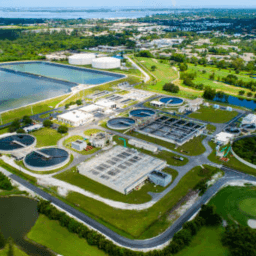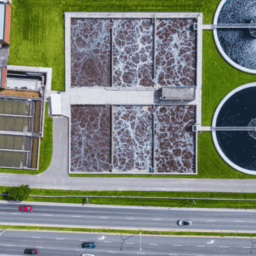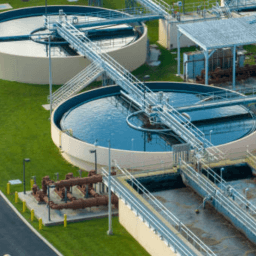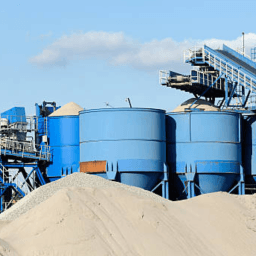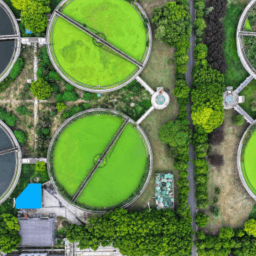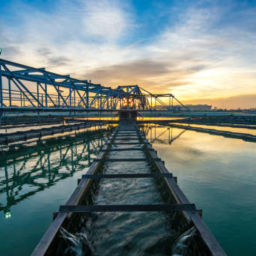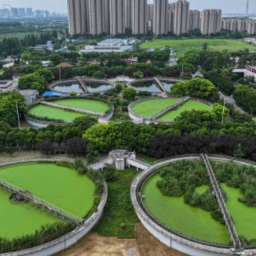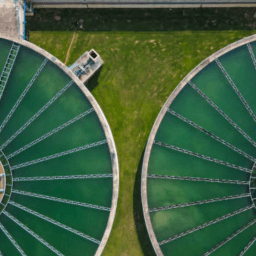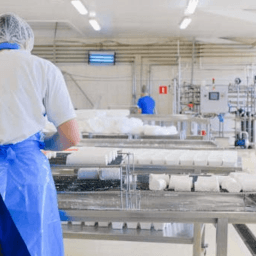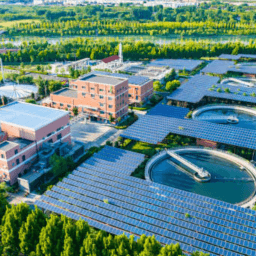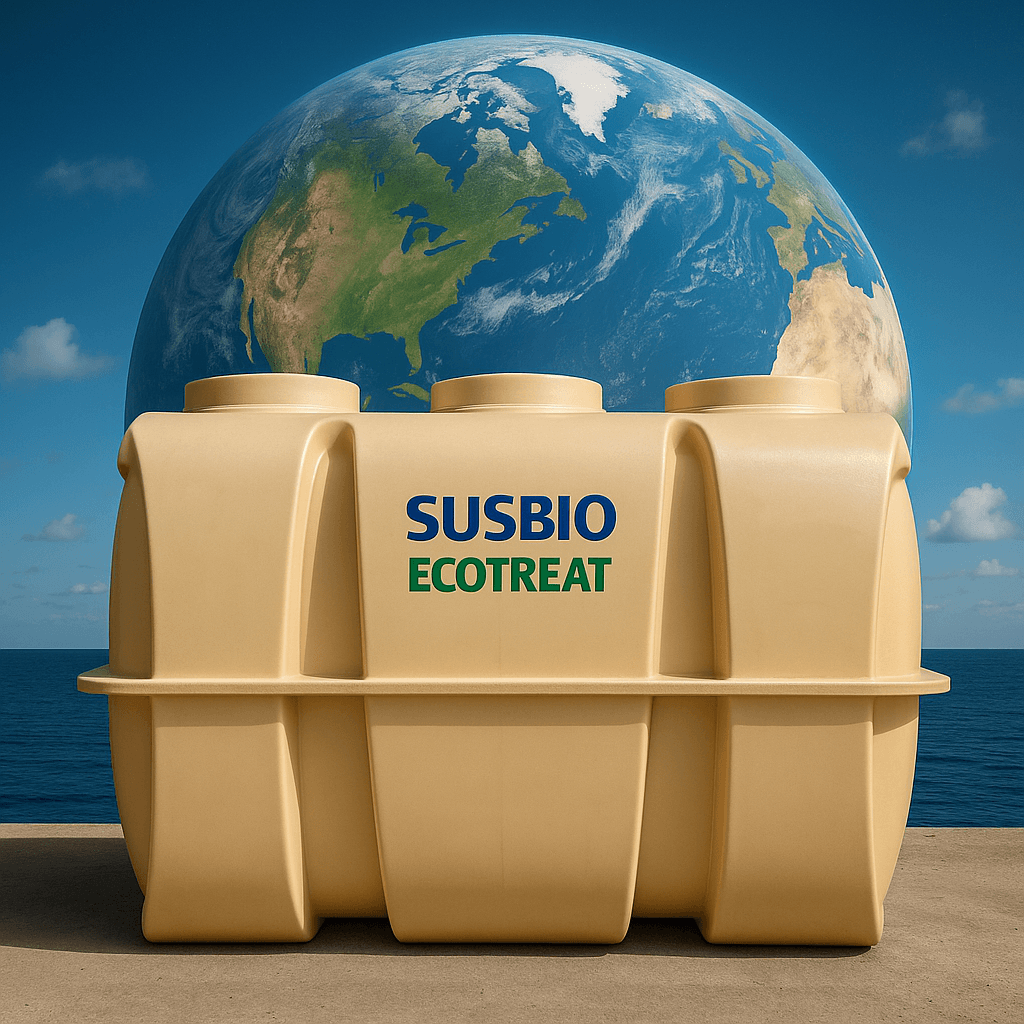
The hospitality industry, comprising hotels and restaurants, generates a significant amount of wastewater due to daily operations such as kitchen activities, cleaning, laundry, and restroom usage. Effluent treatment plants (ETPs) play a critical role in managing this wastewater efficiently, ensuring compliance with environmental standards, and promoting sustainable practices.
How Sewage Treatment Systems for Restaurants Can Reduce Environmental Footprint
Sustainable sewage treatment systems are key to helping restaurants minimize their environmental footprint by improving water efficiency and enabling the reuse of treated wastewater. Here’s how they contribute:
1. Water Conservation
Restaurants use a lot of water for cooking, cleaning, and food prep. Sewage treatment systems for restaurants help reduce water usage by treating and recycling wastewater for non-potable uses, like:
- Toilet flushing
- Irrigating landscaping
- Cooling systems for air conditioning
This reduces reliance on fresh water, helping conserve resources, especially in water-scarce areas.
2. Reuse of Treated Wastewater
After treatment, wastewater can be reused in various ways, such as:
- Flushing toilets: Reduces potable water demand.
- Landscape irrigation: Uses treated water for plants.
- Cleaning: Reuse for non-food cleaning tasks.
This helps cut down water bills and ensures eco-friendly practices, all while reducing the restaurant’s environmental impact.
3. Reducing Wastewater Discharge
Unlike traditional systems, sustainable sewage treatment systems for restaurants treat wastewater, preventing harmful pollutants from being released into local ecosystems, which helps:
- Protect local water bodies.
- Meet regulatory standards.
- Promote sustainability in the community.
4. Lower Carbon Footprint
Modern systems are energy-efficient, utilizing solar power and aerobic treatment technologies to reduce energy use, cut greenhouse gas emissions, and minimize the environmental impact of wastewater treatment.
5. Enhancing Green Certifications
Sewage treatment systems help restaurants earn green certifications like LEED, which recognize efforts in water conservation, energy efficiency, and sustainability, attracting eco-conscious customers and boosting the restaurant’s reputation.
6. Cost Savings
Though installation may require an initial investment, sewage treatment systems for restaurants lead to long-term savings by reducing water bills, waste disposal fees, and reliance on municipal services.
Sewage treatment systems for restaurants offer a sustainable, cost-effective solution for reducing water usage, cutting energy costs, and lowering environmental impact. These systems not only improve operational efficiency but also enhance a restaurant’s eco-friendly reputation, attracting environmentally conscious pa
What Is Effluent Treatment?
Effluent treatment is the process of removing harmful pollutants and contaminants from wastewater. This ensures that the water discharged meets safety and quality standards, protecting the environment and public health. In the context of hotels and restaurants, the primary sources of effluent include:
- Kitchen wastewater from washing utensils, sinks, and cooking equipment.
- Restroom wastewater from toilets and wash basins.
- Laundry wastewater containing detergents and chemicals.
Hotels and restaurants generate effluents rich in organic matter, oils, fats, and suspended solids. Without proper treatment, these pollutants can harm local water bodies, disrupt ecosystems, and pose health risks.
Why Hotels and Restaurants Need ETPs
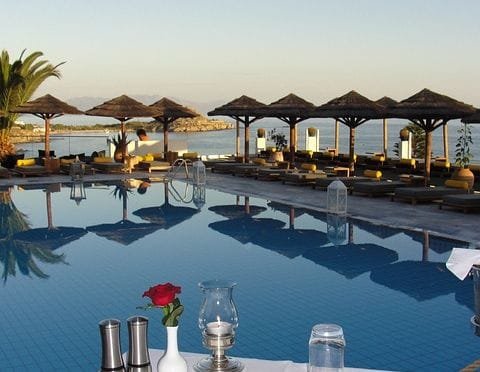
- Environmental Responsibility: Untreated wastewater contributes to water pollution, harming aquatic life and ecosystems. Treating effluent minimizes this impact.
- Regulatory Compliance: Governments mandate strict wastewater management norms. Installing an ETP ensures adherence to these regulations, avoiding fines and legal issues.
- Cost Savings: Treated wastewater can be reused for non-potable purposes such as gardening, cooling, or toilet flushing, reducing water consumption and costs.
- Enhanced Brand Reputation: Adopting sustainable practices reflects positively on a hotel or restaurant’s image, attracting environmentally conscious customers.
The Effluent Treatment Process
Effluent treatment in hotels and restaurants involves four key stages:
-
Preliminary Treatment:
- Removes large debris such as plastic, rags, and food particles using bar screens and grit chambers.
- Reduces oils and greases to prevent damage to subsequent treatment units.
-
Primary Treatment:
- Separates suspended solids and floating materials through sedimentation.
- Removes around 50-60% of total suspended solids (TSS) and reduces biological oxygen demand (BOD) by 30-40%.
-
Secondary Treatment:
- Employs biological methods like the activated sludge process to break down organic matter.
- Involves aeration tanks to promote microbial growth for decomposing pollutants.
- Achieves a reduction of 80-90% of organic matter.
-
Tertiary Treatment:
- Polishes the treated water through advanced filtration and disinfection techniques.
- Ensures removal of residual solids and pathogens using UV light, ozone, or chlorination.
- Produces water safe for discharge or reuse.
7 Key Steps to Efficient Wastewater Treatment for Hotels
- Assess Your Hotel’s Wastewater Needs
Understand how much wastewater your hotel produces daily based on facilities like rooms and restaurants to choose the right treatment system. - Choose the Right Treatment System
Select the best system, such as packaged STPs or biological treatment units, that fits your hotel’s size and wastewater needs. - Pre-Treat Wastewater
Remove solids and debris from the wastewater through processes like screening and sedimentation to ensure efficient treatment. - Use Biological Treatment
Employ aerobic or anaerobic processes to break down organic waste using microorganisms, effectively reducing pollutants. - Advanced Filtration
Apply filtration methods like membrane bioreactors (MBRs) or activated carbon filters to polish the water, removing smaller contaminants. - Recycle and Reuse Water
Recycle treated water for non-potable uses like irrigation or toilet flushing to conserve resources and lower water bills. - Monitor and Maintain the System
Regularly check the system using smart sensors and maintain equipment to ensure optimal performance and compliance with regulations.
By following these steps, hotels can efficiently manage wastewater, save costs, and support sustainable practices.
Benefits of ETPs for Hotels and Restaurants
- Regulatory Compliance: Ensures adherence to local and international wastewater discharge standards, avoiding hefty penalties.
- Water Recycling and Reuse: Treated water can be reused for landscaping, toilet flushing, or cooling systems, conserving water resources.
- Cost Efficiency: Reduces water bills and waste management costs over time.
- Improved Operational Efficiency: Streamlines wastewater management, reducing the risk of downtime caused by waste-related disruptions.
- Boosted Brand Reputation: Demonstrates a commitment to sustainability, attracting eco-conscious customers and improving customer loyalty.
Why Choose SUSBIO for ETP Solutions?
SUSBIO offers advanced and customizable effluent treatment solutions tailored to the hospitality industry. Our state-of-the-art technologies, including the SUSBIO ECOTREAT system, ensure efficient wastewater treatment with minimal operational costs.
Key Features of SUSBIO’s ETP Solutions:
- Compact and modular designs, ideal for space-constrained properties.
- Energy-efficient systems with low maintenance requirements.
- High-quality construction for durability and long-term reliability.
- Expertise in integrating sustainable water recycling practices.
FAQs about Effluent Treatment Plants for Hotels and Restaurants
What is the difference between an Effluent Treatment Plant (ETP) and a Sewage Treatment Plant (STP)?
- An ETP primarily treats industrial wastewater containing chemical pollutants and oils, making it suitable for hotels and restaurants with significant kitchen and laundry operations. An STP, on the other hand, is designed to treat domestic sewage, focusing on organic matter and biological pollutants.
How do I determine the capacity of an ETP for my hotel or restaurant?
- The capacity of an ETP depends on the volume of wastewater generated daily. This can be calculated based on the number of guests, staff, kitchen activities, and laundry operations. A professional assessment by a provider like SUSBIO can ensure accurate sizing.
How much maintenance does an ETP require?
- Routine maintenance involves cleaning filters, inspecting pumps, and monitoring treatment processes. Advanced systems like SUSBIO’s ETPs are designed for minimal maintenance, with automated processes and durable components.
Can treated effluent water be reused safely?
- Yes, treated effluent water can be reused for non-potable applications like landscaping, toilet flushing, and cooling systems. Advanced tertiary treatments ensure the water meets safety standards for reuse.
Why should I choose SUSBIO for my hotel or restaurant’s ETP needs?
- SUSBIO provides cutting-edge solutions tailored to the hospitality industry. Their systems, like the SUSBIO ECOTREAT, are compact, energy-efficient, and designed for long-term reliability, ensuring efficient wastewater management and compliance with regulations.
Conclusion
Effluent treatment plants are essential for hotels and restaurants to manage wastewater responsibly, comply with environmental regulations, and adopt sustainable practices. By choosing an advanced ETP solution like SUSBIO’s, businesses in the hospitality sector can significantly reduce their environmental footprint, lower costs, and enhance their reputation as eco-conscious establishments.
Investing in a high-quality ETP system is not just an environmental necessity but also a strategic move toward sustainable growth.





